Suppression of plant hypoxia responses by cysteine oxidases and arginyl transferases that initiate transcription factor turnover by N-end rule pathway
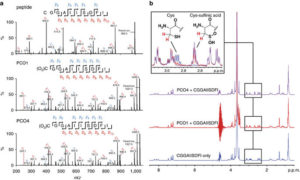 Flooding “drowns” plants by depriving them of oxygen, leading to hypoxia and ultimately death. Ethylene-responsive transcription factors (ERFs) have been identified that induce expression of genes to support anaerobic metabolism and are critical for hypoxia survival. ERFs are selectively destabilized in normal oxygen environment (normoxia), through a turnover response known as the N-end rule pathway, in which their N-terminal methionine is removed to expose a cysteine that is susceptible to oxidation, triggering a proteolytic turnover process. White et al. show the first direct biochemical evidence for the formation of Cys-sulfinic acid (CysO2) by PLANT CYSTEINE OXIDASEs (PCOs) and that this reaction involves the incorporation of molecular oxygen (O2). Furthermore, the authors show that CysO2 is a direct substrate for arginylation by ARGINYLTRANSFERASE 1 (ATE1) which is the entry point to proteolytic degradation in vivo. These findings may lead to the development of plants with improved flooding tolerance. Nature Comms. 10.1038/ncomms14690
Flooding “drowns” plants by depriving them of oxygen, leading to hypoxia and ultimately death. Ethylene-responsive transcription factors (ERFs) have been identified that induce expression of genes to support anaerobic metabolism and are critical for hypoxia survival. ERFs are selectively destabilized in normal oxygen environment (normoxia), through a turnover response known as the N-end rule pathway, in which their N-terminal methionine is removed to expose a cysteine that is susceptible to oxidation, triggering a proteolytic turnover process. White et al. show the first direct biochemical evidence for the formation of Cys-sulfinic acid (CysO2) by PLANT CYSTEINE OXIDASEs (PCOs) and that this reaction involves the incorporation of molecular oxygen (O2). Furthermore, the authors show that CysO2 is a direct substrate for arginylation by ARGINYLTRANSFERASE 1 (ATE1) which is the entry point to proteolytic degradation in vivo. These findings may lead to the development of plants with improved flooding tolerance. Nature Comms. 10.1038/ncomms14690


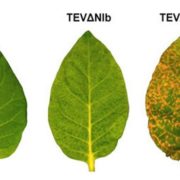
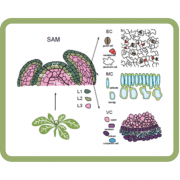
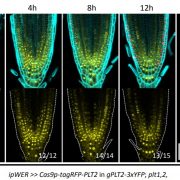

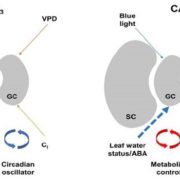



Leave a Reply
Want to join the discussion?Feel free to contribute!